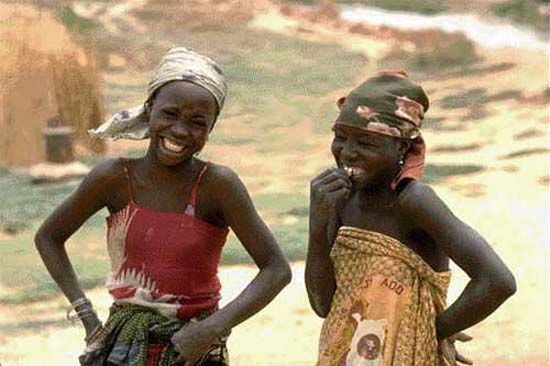
A year after my father’s death I received a letter from my mother. She suggested I find a synagogue and spend the yahrzeit with other Jews. There was just one problem: I was living in a remote African village—a Muslim village—on the outskirts of Nigeria
A year after my father’s death I received a letter from my mother. She suggested I find a synagogue and spend the yahrzeit with other Jews. There was just one problem: I was living in a remote African village—a Muslim village—on the outskirts of Nigeria, where I was a Fulbright researcher. The nearest shul was thousands of miles away, and there was no way for me to get there.
I thought about my father as his yahrzeit approached. Then, two days before the anniversary of his death, I found myself bantering in Hausa (a native language of Niger and Nigeria) with security officers at the university in Kano, a nearby city. They taught me an existential African riddle:
Question: What is sweeter than sweet?
Answer: The fact that you don’t know in advance the day you’ll die.
At nine in the morning on the day of the yahrzeit, I heard crying and wailing from next door. The wife of Ilu the Teaman, my neighbor, had just died. That day, I followed the gravediggers to the cemetery, an unmarked sandy field on the outskirts of the village. All the village men were there. The gravediggers dug a grave 2 feet deep, then they dug another hole within the first. They carried the corpse, wrapped in a shroud and covered by a straw mat, on a bier to the burial ground. They removed the straw mat and placed the body deep in the ground. From one side they filled in the grave using a shovel; from the other side they pushed in the sand with their hands. Everyone sat on the ground and followed the imam, the Muslim priest, in Arabic prayer. It was not the ideal minyan, but it would have to do.
I said kaddish and thought about my father.
I had first come to Africa years before as a Peace Corps volunteer. My father had initially opposed my joining the Corps, saying that those two years of teaching high school in Africa would be better spent in law school. But Dad came around to supporting me, and a year and a half later he actually journeyed to Niger to check up on me.
Initially I feared it would be awkward. Since he was unfamiliar with the land and culture, I, the son, would be leading him, the father, for the first time. But he took his vulnerability in stride. “I’m in your hands, boy,” he said. “I can’t even speak the language.”
He related to other Peace Corps volunteers and American diplomats with surprising ease. He was the hit of the Peace Corps director’s Hanukkah party. I listened in amazement as he regaled seasoned expatriates with his travel tales and life stories.
But it was his bearing with my African friends that impressed me most. Even when he, a quasi-vegetarian, discovered that the goat the imam presented to him was to be slaughtered and skewered in his honor, my father preserved his unflappable calm. He greatly impressed members of my adopted culture, who place a premium on age, and who automatically accord the elderly the status, as we would say back home, of chochom—wise man.
That trip bonded us, and we remained close for the last three years of his life.
After the Teaman’s wife’s funeral, all the men gathered outside Ilu’s home. According to custom, the imam distributed tsaddaka (the Hausa word for “charity” is identical to the Hebrew) to all the mourners: three kobos (cents) to men, one kobo to boys. More prayers (this time the Islamic fatiya) were recited. It was the start of a week-long vigil.
During the tsaddaka ceremony, they asked me how people in my land mourn. The question posed a challenge I had faced many times: providing a single satisfactory answer to sweeping questions about the customs and religions in Ameriyka. How do Americans marry? How do they pray? How do they grieve? To answer “they mourn in different ways” is not to answer at all.
“We too gather the community at the home of the bereaved,” I explained, “though we do not at that time give tsaddaka. Tsaddaka is given in the name of the deceased some time later. It is given not to the mourners directly, but to support our ‘mosques,’ to purchase ‘Korans,’ to support ‘imams,’ to help the poor.”
Hundreds of villagers sat silently around me, thinking about Ilu the Teaman and his wife. I whispered to a friend that today was the first anniversary of my own father’s death. He nodded, understanding. I repeated the kaddish, reburying my father in Africa. .
